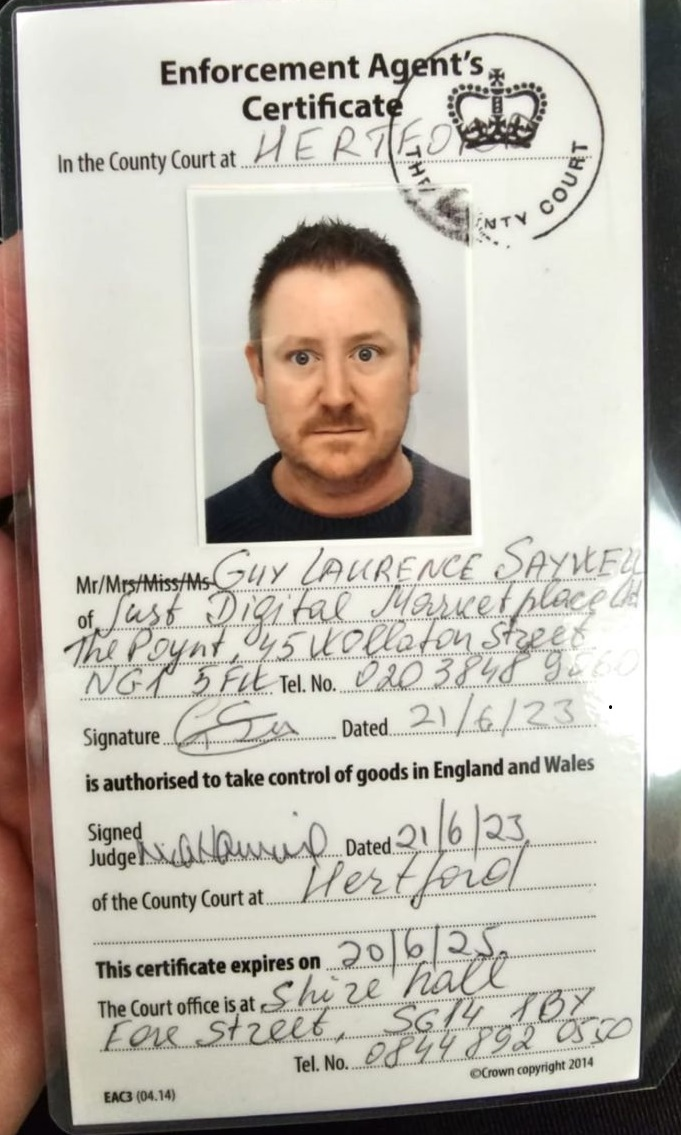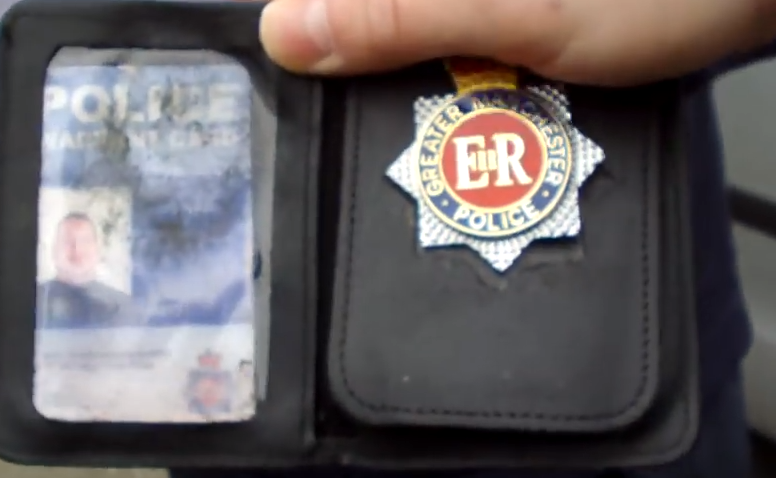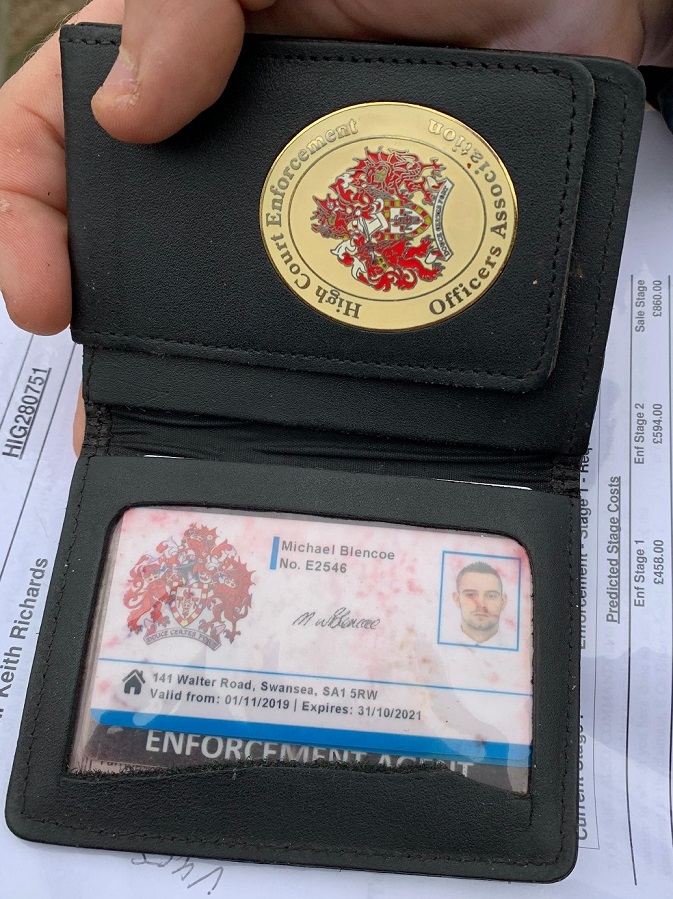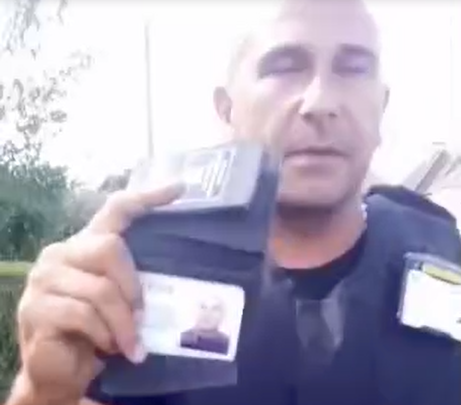Bailiffs Wearing Police-like Body Armour
Bailiffs often wear police-like uniforms, including white shirts, black ties, shoulder boards, and even body armour with police-style radios, which he intends to create the impression at first sight that the bailiff is a police officer.
Bailiffs Wearing Police-like uniform

However, it is illegal for anyone to wear a uniform that closely resembles that of the police. The law defines an "article of uniform" as anything with a distinctive badge, mark, or appearance that could be mistaken for police attire.
A relevant legal precedent is the case of R. v Michael Allen, heard at Northampton Magistrates' Court on 30 October 2014. In this case, the court convicted Mr Allen under Section 90 of the Police Act 1996 for driving a vehicle with police-like markings despite it being a stage prop being driven to a filming location.
This case illustrates that wearing police-like apparel is a criminal offence, and police officers have no discretion in enforcing this law.
Bailiffs are required to carry an official court-issued ID card, which is a simple laminated strip of paper. Bailiffs often dislike this ID due to its understated appearance as shown here.
Geuine Enforcement Agent Certificate

One bailiff company, Marston (Holdings) Limited, has gone as far as to replace the official ID cards of their bailiffs with a wallet containing a metallic star-shaped badge that closely resembles a police warrant card.
Marston Holdings Limited trains its enforcement agents to briefly show these fake badges before quickly hiding them, misleading occupants into believing they are dealing with a police officer.
Genuine Police Badge And Warrant Card

Fake! - Bailiff flashing A Police-like Badge And Warrant Card

There is video evidence demonstrating this practice (at 2:18 into the video) where a bailiff "flashes" his police-like badge and warrant card holder before putting it away.
Fake! - Bailiff Carrying A Police-like Badge And Warrant Card

Fake! - Bailiff flashing A Police-like Warrant Card

If a bailiff company issues such badges or equipment, the company’s directors and any employees aware of the badge’s use and deployment methods may also be committing an offence under section 993 of the Companies Act 2006.
It's crucial to gather evidence, document everything in detail, and report the offence to the police.

